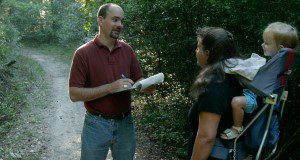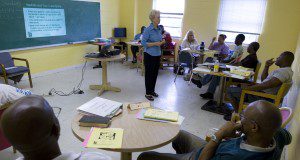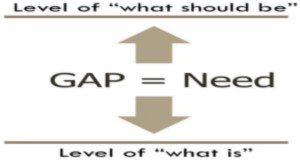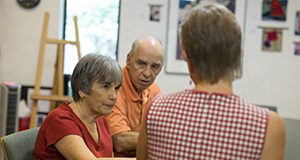This publication will briefly look at how the intent of a survey affects which types of questions should be asked and how the data can be analyzed to help address this intent. It is intended to provide guidance to Extension professionals, as well as persons in community organizations, who conduct surveys for program planning, improvement, and evaluation. Written by Colleen E. Gariton and Glenn D. Israel, and published by the UF/IFAS Department of Agricultural Education and Communication.
https://edis.ifas.ufl.edu/pd083
Tag: needs assessment
Conducting the Needs Assessment #10: The Delphi Technique
Previous publications in the Conducting the Needs Assessment series outlined why, how, and when Extension educators and other service providers should use needs assessments in their programs. The four preceding publications in the series provide Extension educators and other service providers with specific techniques that can be used in needs assessments, and this new 5-page publication provides an overview of using the Delphi technique to conduct a needs assessment. Written by Laura Warner and Amy Harder, and published by the UF/IFAS Department of Agricultural Education and Communication.
https://edis.ifas.ufl.edu/wc364
Conducting the Needs Assessment #2: Using Needs Assessments in Extension Programming
This second publication in the Conducting the Needs Assessment series provides Extension educators and other service providers with a foundational underpinning of how the needs assessment fits within the program planning process. Both formal and nonformal educators seeking to develop and deliver an educational program must first be informed of what their audience lacks in order to develop the right curriculum or training, and therefore conducting a needs assessment is a priority in the program development process. This new publication of the UF/IFAS Department of Agricultural Education and Communication was written by Matthew Benge and Laura Warner.
https://edis.ifas.ufl.edu/wc347
Conducting the Needs Assessment #4: Audience Motivations, Barriers, and Objections
A successful needs assessment is contingent on participation from the right people, so understanding potential motivations, barriers, and objections specific to your participants is critical. This new 5-page publication, the fourth in the Conducting the Needs Assessment series, provides Extension educators and other service providers with an overview of motivations, barriers, and objections specific to participants in needs assessments. Written by Laura Warner and Matt Benge and published by the UF/IFAS Department of Agricultural Education and Communication.
https://edis.ifas.ufl.edu/wc342
Conducting the Needs Assessment, Part 1: Introduction
An integral step in the program development process is identifying the needs of a community. Educators seeking to develop and deliver an educational program must first be informed of what their audience lacks in order to develop the right curriculum or training. This initial publication in the Conducting the Needs Assessment series provides a brief introduction to the planning, implementation, and prioritization of needs within a community or specific clientele group. This new 4-page publication of the UF/IFAS Department of Agricultural Education and Communication was written by Matthew Benge, Amy Harder, and Laura Warner.
https://edis.ifas.ufl.edu/wc340
Identifying and Meeting the Needs of Extension’s Target Audiences
This new 4-page article provides an overview of the concept of target audiences as relating to Extension education and briefly presents concepts of audience analysis and educational content selection. In contrast to the general population, a target audience is comprised of people who can take some explicit action to help solve an identified problem addressed by an Extension program. Sometimes they are also those most affected by that problem. An understanding of the concept of target audiences paired with intentional selection of appropriate educational activities and content can support an impactful Extension program. Written by Laura A. Warner, Glenn D. Israel, and John M. Diaz, this article is a publication of the UF/IFAS Department of Agricultural Education and Communication.
http://edis.ifas.ufl.edu/wc336




